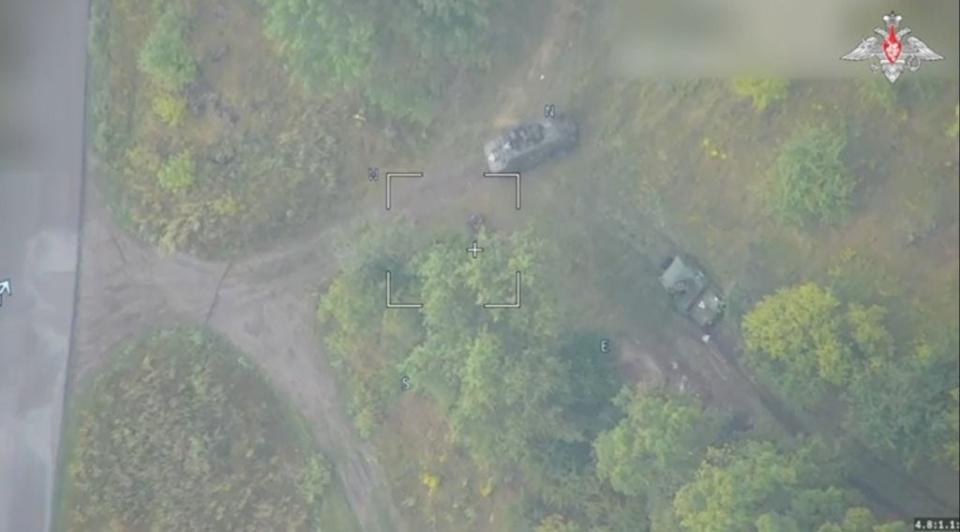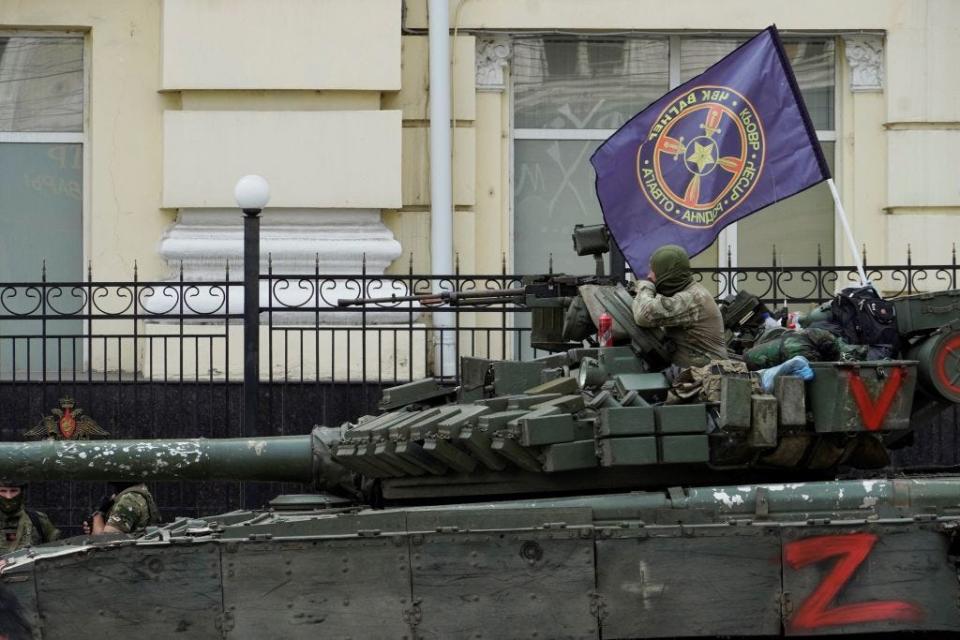-
Ukraine’s military invaded the Kursk region in Russia on Tuesday.
-
The Kremlin initially downplayed the attack.
-
But analysts said it’s an embarrassment to Russia’s strongman President Vladimir Putin.
When Ukraine launched its audacious cross-border attack in Russia’s Kursk region on Tuesday, the Kremlin initially downplayed the incursion, attributing it to a “sabotage and reconnaissance group.”
But as the scale of the attack became clearer, with thousands of Ukrainian troops advancing up to six miles into Russia, President Vladimir Putin hurried to contain the fallout.
In a televised meeting with Kursk Oblast Acting Head Alexey Smirnov Thursday, Putin urged the governor to show “courage and composure,” and assured civilians fleeing the fighting that help was on its way.
The meeting, said US think tank The Institute for the Study of War (ISW), was aimed at reassuring Russians that the situation was under control to avoid “significant domestic discontent.”
Raids such as that launched by Ukraine this week have the potential to undercut Putin’s prestige and power — and the Kremlin’s muddled response is a sign it’s worried.
“Substantial Ukrainian advances within Russia would be a strategic blow to Russian President Vladimir Putin’s decades-long effort to cement a legacy of Russian stability, security, and geopolitical resurgence,” the ISW said.
Ukraine’s attack catches Russia off guard


Ukraine’s motive for the attack, which apparently took Russian forces by surprise, remains unclear, with Kyiv not publicly commenting on the operation.
It’s led to fierce criticism of the Kremlin from ultranationalist bloggers, who’ve questioned why the Russian military was so unprepared and criticized chaotic attempts to evacuate civilians.
Military analysts believe that Ukraine is seeking to land an embarrassing blow on Putin by bringing the war home to ordinary Russians.
Ukraine may also be seeking to divert Russian troops from the front line in the Kharkiv region of Ukraine, which has been the site of ferocious combat in recent months. It also seems intent on showing its Western backers it can “flip the script” and pull off audacious operations after recent setbacks, said Bryden Spurling, an analyst with the Rand Corporation.
Callum Fraser, an analyst at the Royal United Services Institute in London, said Putin’s strongman image is based on his capacity to keep Russians safe.
“Putin needs to demonstrate that Russia’s borders are secure and that ultimately, the people within Russia aren’t going to be affected too much by the conflict that’s taking place in Ukraine,” he told Business Insider.
“As soon as it starts to affect the people that’s [when they] become galvanized to actually do something about it, to secure their own livelihoods and their property, and that may then lead to them questioning whether Putin is the right man for the job.”
Putin has so far been able to avoid major domestic unrest from the two-year war— despite the vast casualties it’s inflicted on the Russian military.
The economic impact on ordinary Russians has not been as severe as some economists had projected. Meanwhile, the Kremlin has tightly controlled media coverage of the war and Putin has avoided having to impose unpopular military drafts by boosting conscription.
But the 2023 rebellion by Russian mercenary group Wagner exposed Putin’s vulnerability to blowback from events in Ukraine.
The Russian government lost control of the city of Rostov to rebels protesting what they saw as Russia’s botched campaign, and mercenaries advanced on Moscow before the mutiny was called off.
Fraser said the Wagner rebellion is likely weighing on Putin’s mind as he considers the potential fallout from the Kursk incursion.
He said the incursion is partly about “demonstrating to the people within Russia and the border regions that they’re not as safe as they want to be, which could potentially cause some domestic discontent.”
Putin’s failures to protect Russia, said Spurling, are “dangerous to his image and for those around him, and that in turn can chip away at the cohesion and unity of his inner circle.”


A play for leverage in negotiations
There are doubts about whether Ukraine’s already overstretched military can sustain the momentum of its Kursk incursion.
Ukraine is already struggling to recruit enough troops to hold its defensive positions on the front lines, and the high-risk attack on Russia has been met with an, at best, lukewarm response from Kyiv’s most important international ally, the US.
It’s unclear, said Maxim Alyukov, a political sociologist at King’s College London, how long Ukraine would be able to hold the territory it’s seized in Russia if the Kremlin launches a major operation to drive them out.
But with reports indicating that both sides in the war may be willing to consider peace negotiations, Ukraine may be gambling that by landing a humiliating blow on Putin, it’ll be able to negotiate a deal from a position of strength.
The operation, Alyukov said, is a “bold move” aimed at sending a message that Ukraine retains the capacity to hurt Russia in new and unexpected ways.
But Ukraine will have to sustain the momentum to seriously dent Putin’s power.
Read the original article on Business Insider







